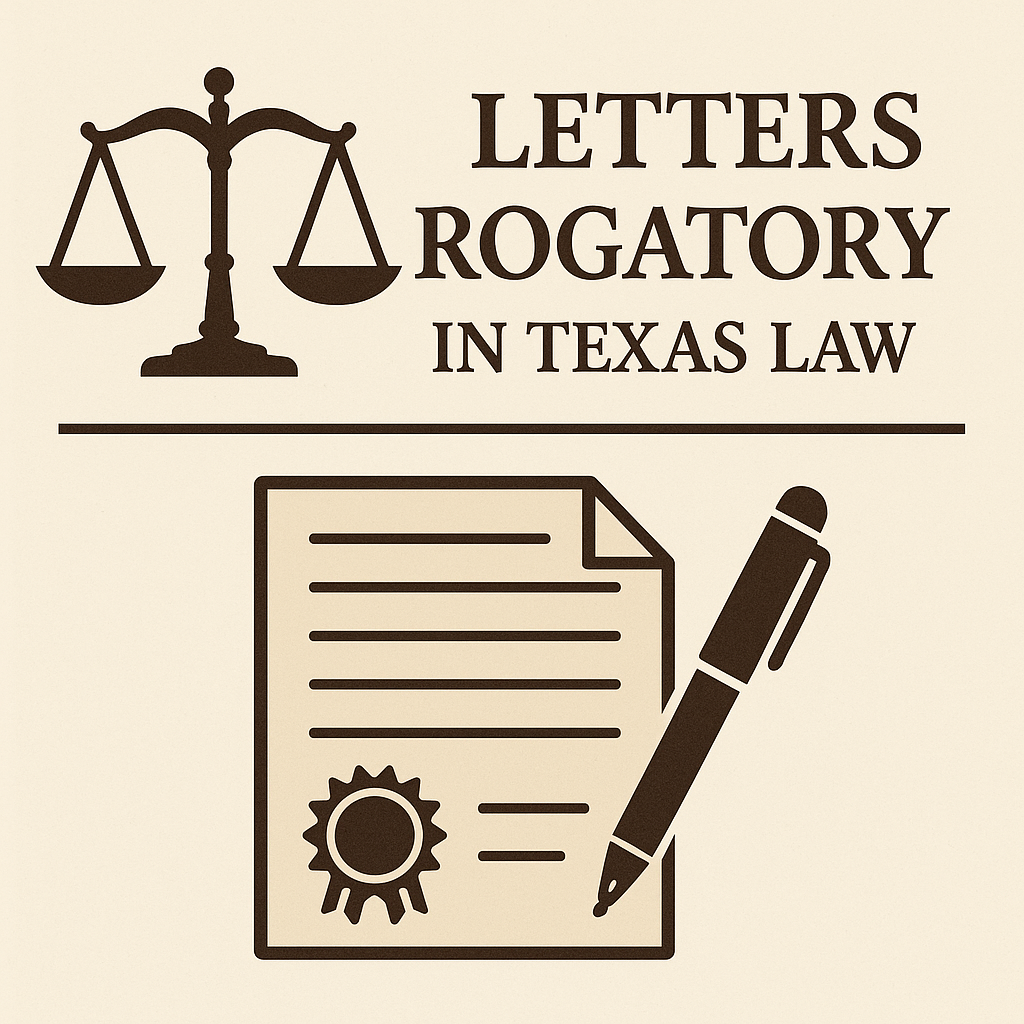
When litigation in Texas stretches beyond U.S. borders, traditional discovery tools like subpoenas or depositions may not be enough. That’s where letters rogatory come in—a centuries-old but still vital tool for obtaining evidence abroad.
What Are Letters Rogatory?
Letters rogatory (sometimes called letters of request) are formal requests from a court in one country to a court in anotherasking for judicial assistance—usually to obtain testimony, serve process, or compel production of evidence from someone located overseas.
They are based on principles of international comity, where courts respect each other’s sovereignty and cooperate to facilitate justice.
How They Work Under Texas Law
Texas courts derive their authority to issue letters rogatory from Texas Rule of Civil Procedure 201.2, which governs depositions and discovery in foreign jurisdictions. The rule allows a Texas court to request the aid of a foreign tribunal in obtaining evidence when a witness or evidence is outside the United States.
In practice, the requesting party files a motion for issuance of letters rogatory, explaining:
- The necessity of the foreign evidence or testimony;
- The relevance to the case; and
- The foreign country and court to which the request will be directed.
The Texas court then issues a signed order transmitting the request through appropriate diplomatic channels—often through the U.S. Department of State or under a treaty like the Hague Evidence Convention(if the foreign country is a signatory).
Texas in the International Context
If the foreign nation is part of the Hague Evidence Convention, the Texas court’s letter rogatory may take the form of a “letter of request” under that treaty. The request is sent to the designated “central authority” in the foreign country, which arranges for the evidence to be obtained according to its domestic laws.
If the country is not a Hague signatory, the request must pass through diplomatic channels, which can be slower and more formal.
Practical Considerations for Texas Litigators
- Timing matters. Letters rogatory can take months to process internationally—build that into your discovery schedule.
- Precision is key. The foreign court will only act on what is clearly requested. Vague or overbroad language can cause rejection or delay.
- Translation and formatting. Requests must usually be translated and conform to the foreign court’s procedural norms.
- Cost. Expect to pay for certified translations, diplomatic fees, and sometimes foreign legal counsel.
- Authentication. Once evidence is received, it must be properly authenticated for admission under the Texas Rules of Evidence (often Rule 902(3) for foreign public documents).
When Are Letters Rogatory Used?
- Obtaining testimony from a foreign witness or company officer.
- Authenticating or compelling production of business records located overseas.
- Serving defendants or entities in countries that prohibit private service.
These are especially important in Texas cases involving multinational corporations, cross-border business disputes, or foreign spouses in family litigation.
Conclusion
Letters rogatory bridge the gap between Texas courts and foreign jurisdictions. While they are formal, slow, and procedural, they remain one of the few lawful ways to secure overseas evidence in Texas litigation. When international boundaries blur the discovery process, letters rogatory are the tool that keeps the rule of law connected across borders.
At David C. Barsalou, Attorney at Law, PLLC, we help clients navigate business, family, tax, estate planning, and real estate matters ranging from document drafting to litigation with clarity and confidence. If you’d like guidance on your situation, schedule a consultation today. Call us at (713) 397-4678, email barsalou.law@gmail.com, or reach us through our Contact Page. We’re here to help you take the next step.